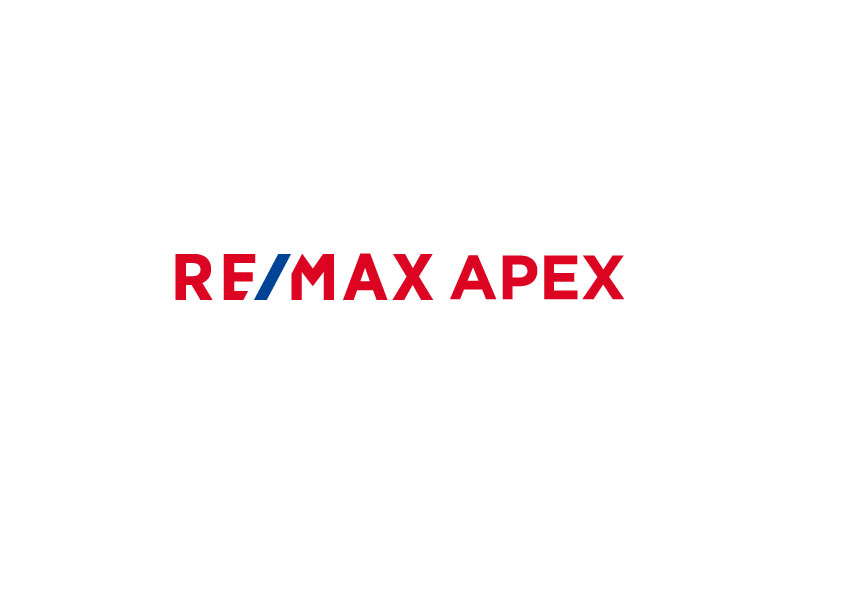Reasons Why You Should Not take it Lightly
Newspaper advertisements and insert advertisements, which were mainstream a decade ago, continue to shrink as the number of subscribers decline.
In contrast, Internet advertising continues to grow.
Advertisements using Social Media is said to be particularly effective, and it is said that the growth rate is remarkable due to the ease of posting.
In fact, in the results of various surveys targeting consumers, the number of respondents who answered they found out about real estate companies and properties “through the Internet” overwhelmed other media. A detailed analysis shows that many of these cases were triggered by social media.
There is no “choice” but to use social networking ads, which are inexpensive and highly effective, but be careful to make sure that they are not hype ads.
Real Estate portal sites such as SUUMO and At Home are based on real estate advertising rules. Exaggerated or confusing expressions and omissions are checked. This is the so-called unification of usage rules and disposition standards.
In 2013, the JFTC conducted an examination of real estate information website operators (five major companies) that share this information to determine whether the act of restricting expressions through such rules violates the Antimonopoly Law.
As a result, it was concluded that preventing malicious “bait advertisements” and complying with the Real Estate Fair Competition Code, and thereby suspending the listing of real estate agents who repeatedly violate the rules, would not be a problem under the Antimonopoly Law.
However, it is possible advertisements which are sent out by a business or its employees using social networking services may not be subject to third-party checks, and thus may not be subject to the Anti-Monopoly Law. However, there have been many cases of violating the Real Estate Fair Competition Code and the Act against Unjustifiable Premiums and Misleading Representations because there is no third-party check for the advertisement.
The same is true when real estate information is posted on a company-operated website. If the person in charge of inputting the information or the individual transmitting the information via social media does not understand the terms of representation, the advertisement may be unintentionally posted in violation of the terms of representation.
Such advertisements that violate the terms of representation are subject to penalties under both the Act against Unjustifiable Premiums and Misleading Representations and the Building Lots and Buildings Transaction Business Act. Which can be subjected to action orders fines and penalties.
In particular, the penalty for repeatedly publishing an advertisement without accepting the Real Estate Fair Trade Council’s corrective recommendations is a maximum of 5 million yen. Under the Building Lots and Buildings Transaction Business Law, violations of real estate advertising regulations are punishable by imprisonment for up to 6 months or a fine of up to 1 million yen, or both.
Since the penalties under the Building Lots and Buildings Transaction Business Law and the Act against Unjustifiable Premiums and Misleading Representations are judged separately, the worst-case scenario is that both penalties will be imposed. We can understand how serious the penalty is.
In this article, we will explain what social media advertisements are, which are easy to use, and understanding what you are doing and looking at
It is necessary to understand the basics of the Act against Premiums and Misleading Representations and the Fair Competition Code

Regarding social media advertising, there may be cases where a real estate salesperson posts properties as an individual.
If you are a salesperson whose salary is based on a higher percentage of commission than your base salary, it is understandable that you would want to get a response by introducing the properties you are in charge of under your own name.
However, if you have no such experience, you probably do not understand even the basic “Fair Competition Code” regarding real estate advertising in detail. Even if you have been creating real estate advertisements on a daily basis.
This is a good opportunity to explain the basics of the Fair Competition Code.
However, before that, it is necessary to understand the Act against Unjustifiable Premiums and Misleading Representations (formally known as the Act against Unjustifiable Premiums and Misleading Representations).
Regulations under the Act against Unjustifiable Premiums and Misleading Representations
Article 5, Paragraphs 1-3 of the Act against Unjustifiable Premiums and Misleading Representations prohibits the following types of misrepresentations.
- Indication of Product Contents: “Representation which are deemed likely to unfairly solicit customers and to impede unfair competition by indicating to general consumers the quality, standards, or other details of goods or services are significantly better than they actually are. Or they are significantly better than those of other businesses in competition with the business in question, in contrast to the actual facts.”
- Misrepresentation of Terms and Conditions of Transactions: Representations which are deemed likely to unfairly induce customers and impede fair competition because they mislead general consumers into believing the price or other terms and conditions of goods and services are significantly more favorable to the counter-party.
In addition to those listed in the preceding two paragraphs, the Fair Trade Commission designated in Section 3, “misrepresentation which are likely to mislead general consumers about matters concerning goods and services, and are likely to unfairly induce customers or impede fair competition.
Under this Act, the Prime Minister has the authority to order the suspension of any advertisement which falls under any of the above categories. To take necessary measures to prevent such an act from occurring again. To issue a public notice related to the implementation of such an order, and to take any other necessary measures.
The Prime Minister also has the authority to order necessary matters to the operator or his/her successor, even if the act has already ceased to exist.
Furthermore, the Prime Minister must order the payment of a surcharge (an amount calculated by multiplying the amount of sales by three one-hundredths (3/100) by a method prescribed by a Cabinet Order) to the national treasury for any violation of the Act.
As the phrase “shall order” rather than “may order” indicates, there is no room for omission.
However, if it is deemed that the person did not know the act subject to the surcharge falls under any of the provisions of Article 8 of the same law, did not take reasonable care not to know, or if the amount of the surcharge is less than 1,500,000 yen, “the payment of the surcharge may not be ordered.”
In fact, the authority of the Prime Minister with respect to the Act against Unjustifiable Premiums and Misleading Representations is delegated to the Commissioner of the Consumer Affairs Agency under Article 33 of said Act, and the Fair Trade Commission is further delegated a part of the authority under Paragraph 2 of said Article.
In addition, the Fair Trade Commission has established the “Fair Competition Code,” which is voluntarily concluded among business associations regarding these unfair solicitation practices after receiving approval from the Fair Trade Commission.
For real estate agents, the “Fair Competition Code Concerning Representation of Real Estate” is one such code.
The “Real Estate Fair Trade Council” is responsible for the establishment, revision, and unified interpretation of the codes.
In addition, the local real estate fair trade councils are responsible for investigating violations, taking corrective action, and levying, collecting surcharges and penalties for actual labeling of the violations.
If you understand the flow of the legal mandate, you will understand that we real estate agents must comply with the “Law for Preventing Unjustifiable Premiums and Misleading Representations,” the “Competition Code Concerning Representation of Real Estate,” and the “Enforcement Regulations of the Representation Code.”
As you may be aware, the revised “Competition Code Concerning Real Estate Representation” was approved by the Consumer Affairs Agency on February 1, 2022, and the revised rules on distances from transportation facilities went into effect on September 1 of the same year (2022).

The Fair Competition Code Concerning Representation of Real Estate and its Enforced Regulations are published on the Internet by the Real Estate Fair Trade Council. For real estate agents, It is necessary to read them carefully, including the amendments.
The latest version of the Fair Competition Code can be found at the following URL
https://www.rftc.jp/koseikyosokiyaku/
Being Careful with Expressions
If you carefully read and abide by the fairness rules and regulations introduced in the previous section, problematic labeling will not take place.
However, in writing this article, I randomly picked up and checked the websites of real estate companies and found a few that violated the terms of representation.
Similarly, I checked the contents of social media ads and employee listings that are tied to the company, and these were even worse.
The company did not clearly state the type of transaction, and as a matter of course, the required information was omitted.
In addition, the contact information is only a personal cell phone number, and the name of the company to which the employee belongs is not listed. Therefore it is not clear whether or not the “employee” is a licensed contractor.
Furthermore, the listing is full of regulatory words such as “natural sunlight” and “rare property that is rarely found.”
Needless to say, under the Enforcement Regulations of the Real Estate Display Regulations, even if information is disseminated via social media, which can easily transmit information, it is classified as Internet advertising under Article 2 of the same regulations as a display medium.
Naturally, the “necessary advertised items” stipulated in Article 8 of the Real Estate Display Regulations, which are items related to the advertiser, as well as the property location, size, shape, price, transaction terms, transportation and other convenience items. The information must be clearly displayed in a legible size, color, font, and easy-to-understand expressions as stipulated in the regulations.
In addition, the timing and the method of display for advance notice advertisements (e.g Open Houses) are also stipulated.
Example Post on Social Media: “We are going to introduce a small lot for sale in a popular area which will soon be available for sale. Please send me a message if you are interested.”
If the post only has the address, a photo, and information about the lot, you are not only in violation of the Fair Competition Code and its enforcement regulations, but also fall under the category of “unreasonably soliciting customers and threatening to impede unfair competition” under the Act against Unjustifiable Premiums and Misleading Representations.
Another common practice seen on social media sites is the double labeling of old and new prices, such as “price reduced.”
Article 20 of these regulations prohibits double pricing in principle, but Article 14 of the Regulations states that this does not apply if the price is “announced at least three months before the price reduction and the price was actually sold at least three months before the price reduction.”
It is assumed that because it is a social media, “you wouldn’t know.” If someone with some knowledge of the subject sees it, they can easily spot this level of detail.
Some of them were accompanied by comments such as, “It is currently being offered for sale at 50 million yen, but it is possible to negotiate down to around 45 million yen. Even though the transaction type was mediation, it is an expression that unintentionally makes you say “Seller!” Not brokerage or mediation.
When the general consumer considers purchasing under the assumption that the price can be negotiated down, if it does not go down, what excuse will the real estate agent make?
The staff of the branches of the JFTC and the Real Estate Fair Trade Council will not overlook such basic indications.
In addition, when information about a property is announced via social media sites, information about properties which have already been contracted is often not removed and left in place. Even if this is unintentional, it is likely to be regarded as a bait-and-switch advertisement, since it is an advertisement for a property that does not exist. “Inadvertently” is not acceptable.
If it is an inadvertent mistake, the first time it may be resolved with a warning, but if it is repeated, harsher penalties will be imposed.
Article 27 of the Labeling Regulations stipulates the measures to be taken for such labeling violations.
Specifically, if the Fair Trade Council determines that there has been a violation of the code, it may “warn the offending party that necessary measures should be taken immediately to eliminate the violating act” and at the same time warn the offending party not to repeat the same act, or impose a penalty of up to 500,000 yen.
If the above warning is ignored and the same conduct continues, a penalty of up to 5,000,000 yen may be imposed. In addition, the Consumer Affairs Agency Commissioner may suspend or expel the member of the Fair Trade Council and request the necessary measures be taken.
Many people assume it is okay because they are posting the information as an individual, but “expressions that impede fair competition” fall under the Act against Unjustifiable Premiums and Misleading Representations, which does not require the person posting the information be a business or not.
In other words, even if the name of the person posting the information is an individual or a third party, there is a high possibility that it will be judged to be a transaction of goods or services provided by a business.
Lets refrain from assuming “it is fine” because it is social media.

For additional information or any questions please contact us here
Email: info@remax-apex.com

